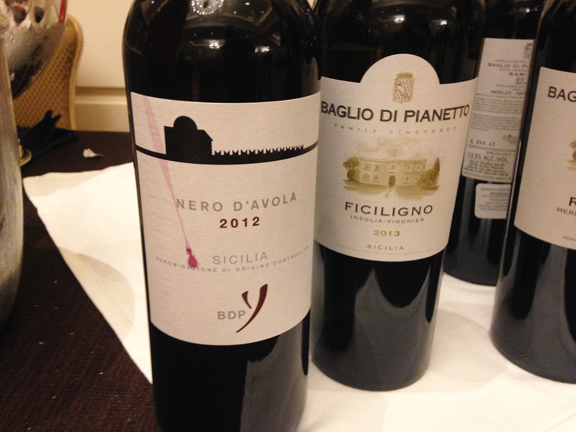 Above: I really loved the Bibbiano entry-tier Chianti Classico, which I tasted for the first time at the Gambero Rosso Road Show tasting in Mexico City. This is my kind of Chianti… superbly grown Sangiovese with a touch of Colorino, vinified in cement. Utterly delicious.
Above: I really loved the Bibbiano entry-tier Chianti Classico, which I tasted for the first time at the Gambero Rosso Road Show tasting in Mexico City. This is my kind of Chianti… superbly grown Sangiovese with a touch of Colorino, vinified in cement. Utterly delicious.
In the late 1960s and early 1970s, Pier Paolo Pasolini wrote famously in verse and in essays about Italy’s disenfranchised youth.
As the much of the country basked in the “economic miracle” that emerged nearly two decades after the Second World War, many southerners were left behind by the country’s newfound prosperity.
In his unforgettable poem “Il PCI ai giovani” (“The Italian Communist Party [belongs] to youth”), published in the wake of the 1968 Battle of Valle Giulia, he wrote of the “police, children of the poor.” These were the economically challenged young people of southern Italy who escaped their depressed regions by joining Italy’s paramilitary police force, the Carabinieri.
I was reminded of this poem and Pasolini’s myriad essays on the widening economic inequality in 1960s and 1970s Italy by something that a young Italian wine professional said to me in Mexico City last week.
Originally from Abruzzo, he has an import company there and works primarily with Italian estates.
When I asked him if he liked living in Mexico, he looked at me squarely.
L’Italia non fa impresa, he said flatly, Italy doesn’t do business. In other words, there isn’t a business-friendly culture in Italy that allows motivated young people like him (he was in his early thirties, I gauged) to embrace an entrepreneurial spirit.
Mexico — not a country that many would count among the world’s most prosperous — is a better place for him to do business, it seems.
 Above: another wine I really loved was the Baglio di Pianetto entry-tier Nero d’Avola. The winemaker told me that the consulting enologist is Marco Bernabei, the son of the legendary Franco Bernabei. It’s made from organically farmed fruit and is vinified in temperature controlled stainless steel. “It’s actually a very simply made wine,” he said. And its transparency and focus were delicious and refreshing on the palate. A great by-the-glass.
Above: another wine I really loved was the Baglio di Pianetto entry-tier Nero d’Avola. The winemaker told me that the consulting enologist is Marco Bernabei, the son of the legendary Franco Bernabei. It’s made from organically farmed fruit and is vinified in temperature controlled stainless steel. “It’s actually a very simply made wine,” he said. And its transparency and focus were delicious and refreshing on the palate. A great by-the-glass.
After he left my stand, I turned to the Tuscan winemaker pouring next to me and we talked about the bleak job horizon for young people today in Italy, where there is a nearly 50 percent unemployment rate for people under 25.
Grape growing and agriculture in general are one of Italy’s greatest resources and exports. Yet the country’s current economic stagnation and its burdensome and behemoth bureaucracy leave little room for economic mobility for the new generation of wine professionals there — like my new friend from Abruzzo.
Everywhere you turn in Italy, wine appreciation is less and less popular among young people and the wine trade is increasingly sustained and supported not by domestic consumption but by exports.
It struck me that day in Mexico City that the wines are the children of the poor. They must abandon their birthright and travel far from their villages to sustain themselves — just like the young man from Abruzzo.
Sadly — tragically, really — this is the reality faced by a legion of young wine professionals in Italy today.
Thanks for reading…

I appreciate how you addressed Italy’s economic challenges from your point of view. Italy is a country I really love, but the lack of opportunity for young people here wanting to work in and build industry is a sad reality so many of my friends face.
That IS sad. I pray for better times in Italy.
food for thought…..thanks for sharing your “deeper” thoughts
thanks, all, for being here… When that guy said that to me, I was floored (as was my table mate).
I notice this the more and more I speak with folks in Italy. I practice my Italian weekly with native Italians in Italy mostly from the younger generation and they are going everywhere else for opportunities than Italy. It’s amazing to me how many of them really don’t even know much about wine or aren’t that interested in it.
Pingback: A note from our blogmaster @DoBianchi | Montalcino Blog